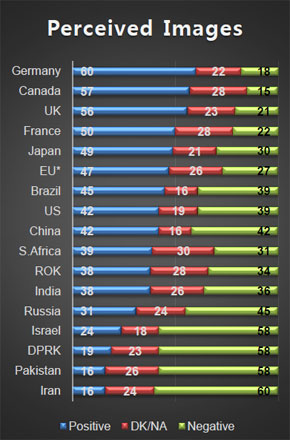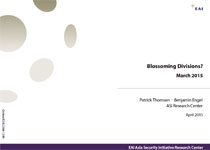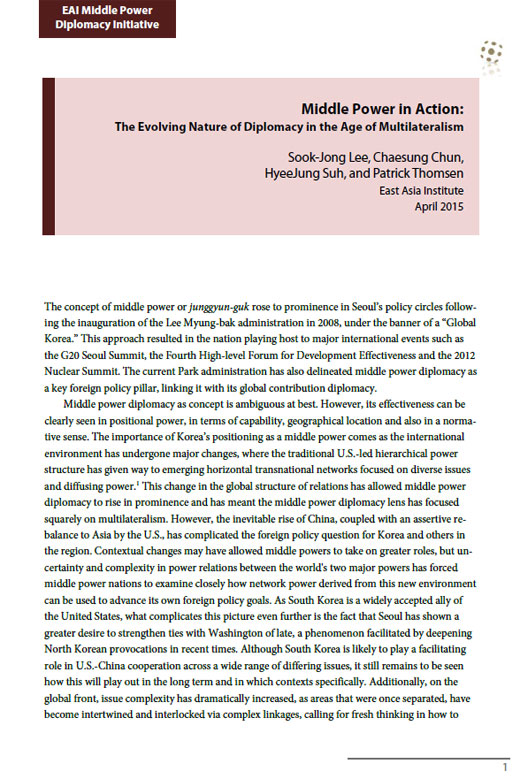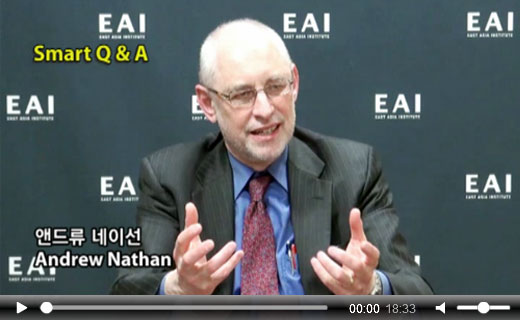|

|
|
Korea's Reputation among Neighbors Deteriorating
EAI released the findings of the latest Country Ratings Poll which aims to measure and track perceptions of different countries by foreigners. The poll found that while South Korea’s image had improved in most regions, its reputation had declined in the eyes of its neighbors - China and Japan. This has caused increased security related anxiety and demands for the South Korean government to place a greater emphasis on “balancing.”

|
|
|

|
|
Clarifying Choices? - UCR March 2015 Edition Available Now
As China's efforts to establish the AIIB gains considerable momentum, the start of spring brings clarifying choices between nations over a range of issues in the region. This is further emphasized by the posturing over the potential of the deployment of THAAD on the Korean peninsula, rising tensions over China's 'island building' in the South China Sea, and the growing problems in the Middle East and Ukraine.

|
|
|

|
|
Testing Asia's Disposition toward International Norms
Making use of a unique measurement index to conceptualize a state's "disposition" toward international norms, Alexander Dukalskis examined the policies of three major Asian states toward the norms contained in the Rome Statute of the International Criminal Court. His analysis focused on interactions between South Korea, Japan and China up to the late 1990s and on recent efforts to bring North Korea into the court's orbit.

|
|
|

|
|
Role of Middle Power Diplomacy in the Age of Multilateralism
EAI has released a special report entitled “Middle Power in Action: The Evolving Nature of Diplomacy in the Age of Multilateralism.” The report looks at the definition of middle power, development of a middle power network, and application of middle power diplomacy in improving U.S.-China cooperation. It also suggests policy recommendations for middle powers to expand their status and role using the specific example of South Korea in a wide variety of issue areas.

|
|
|

|
|
Is Talk of a Power Transition in the Global Balance of Power Premature?
Andrew Nathan argued that the relationship between the U.S. and China is characterized by mutual cooperation, however, at the same time, is punctuated by a deep sense of mistrust. He posited that it is too early to speak of power transition and that it is important for Korea to keep the balance between the two instead of a tilt.

|
|
|

|
|
Globalization Leads to Expansion of Social Welfare in Rural China
Emphasizing that the existing compensation mechanism may work for democracies, Eun Kyong Choi presented an alternative causal mechanism through which globalization leads to social welfare expansion in non-democratic countries.

|
|
|